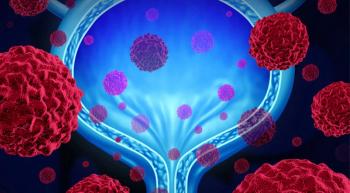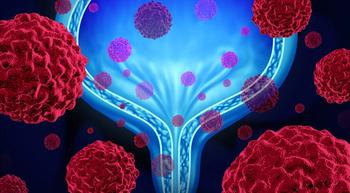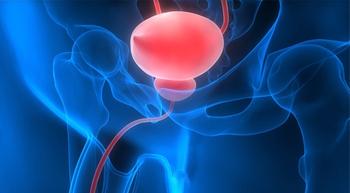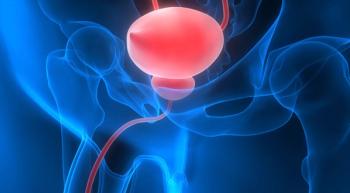
Patients with previously untreated locally advanced or metastatic urothelial carcinoma treated with Bavencio and best supportive care as a first-line maintenance therapy experienced significantly longer survival.

Patients with previously untreated locally advanced or metastatic urothelial carcinoma treated with Bavencio and best supportive care as a first-line maintenance therapy experienced significantly longer survival.

The Food and Drug Administration’s accelerated approval of Padcev offers patients with advanced bladder cancer a potential standard of care.


The Food and Drug Administration approved Padcev for the treatment of adult patients with locally advanced or metastatic urothelial cancer who have received prior treatment with a PD-1/PD-L1 inhibitor and platinum-containing chemotherapy.

The FDA has granted a priority review to a supplemental biologics license application (sBLA) for Keytruda (pembrolizumab), an anti-PD-1 immunotherapy, for the treatment of patients with Bacillus Calmette-Guerin (BCG)-unresponsive, high-risk, non-muscle invasive bladder cancer (NMIBC), according to Merck, the drug’s manufacturer.

The IMvigor130 trial showed chemotherapy plus immunotherapy in patients with metastatic urothelial cancer could prolong the time to disease progression.

The oral medication Balversa (erdafitinib) shows promise in patients who have FGFR3 gene alterations.

Here are the top 5 CURE stories for July 2019.

Genomic distinctions between bladder cancer variances are revealed through rapid autopsy, according to one study, and may help push forward bladder cancer research.

Karen, who received her bladder cancer diagnosis in 2010, was faced with a similar challenge after her husband was diagnosed with the same disease just six years later.

In this week’s episode of the “CURE Talks Cancer” podcast, we spoke with a bladder cancer survivor turned caregiver about the advice she would give her newly-diagnosed self.

A medical oncologist discusses the findings of three clinical trials presented during the 2019 American Society of Clinical Oncology Annual Meeting.

The Bladder Cancer Advocacy Network announced the recipient of its prestigious Bladder Cancer Research Innovation Award.

Compared with single-agent therapy, the combination of Yervoy and Opdivo showed a 38% overall response rate.

After progressing on prior therapy, 44% of patients with locally advanced or metastatic urothelial cancer who were treated with enfortumab vedotin demonstrated a response to treatment, according to phase 2 study findings.

From today’s top performers to the latest in scientific research, here’s what is making headlines in the cancer space this week.

From World Blood Cancer Day to today’s top performers fundraising for lifesaving research, here’s what’s making headlines in the cancer space this week.

With no available diagnostic tests for the detection and/or monitoring of bladder cancer, researchers from the Medical College of Georgia at Augusta University may have two new urine tests that determine the disease’s severity and detect for its recurrence.

May is recognized as Bladder Cancer Awareness Month. Know the facts and statistics in order to understand your risk for the disease and take preventative actions to guard your health.

A recent study showed that postmenopausal women demonstrated a significant reduction in the risk for bladder cancer after quitting smoking, highlighting the need for prevention and cessation programs in older women.

Researchers at Baylor College of Medicine found that a particular subgroup of patients with advanced bladder cancer, identified with a computational tool, responded to immunotherapy.

A person’s pre-existing mental state may negatively influence their health, but professional support can help maintain the best mindset, say researchers.

Researchers found that women who went into menopause before 45 years old were at greater risk for bladder cancer than women who experienced it later.

After more than 30 years of relative stability, the treatment landscape for urothelial cancer has seen updates in recent years that provide hope for patients.

According to survey results, almost 30% of non-muscle invasive bladder cancer survivors experienced at least one PTSD symptom.